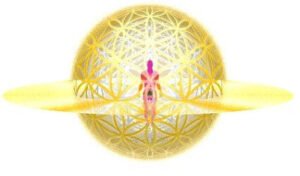Comparison of US and Swiss Covid-19 vaccination advice | Dr. John Campbell | Apr 11, 2023 (Video)
12 min
Content Source: Dr. John Campbell
~~
Notes and References:
In principle, no COVID-19 vaccination is recommended for spring/summer 2023.
CDC
You are up to date with your COVID-19 vaccines,
https://www.cdc.gov/coronavirus/2019-ncov/vaccines/stay-up-to-date.html#children
when you have completed a COVID-19 vaccine primary series,
and got the most recent booster dose recommended for you by CDC.
From the CDC site today (10th April)
People aged 6 months through 64 years,
and especially males aged 12 through 39 years,
may consider getting the 2nd primary dose of Pfizer-BioNTech, Moderna, or Novavax
8 weeks after the 1st dose.
Coronavirus: Vaccination
In principle,
no COVID-19 vaccination is recommended for spring/summer 2023.
People at especially high risk can receive a vaccination following an individual consultation with their doctor.
Is vaccination recommended for spring/summer 2023?
In principle, no COVID-19 vaccination is recommended for spring/summer 2023.
Nearly everyone in Switzerland has been vaccinated and/or contracted and recovered from COVID-19.
Their immune system has therefore been exposed to the coronavirus.
Seroprevalence data from mid-2022 98% + had antibodies against SARS-CoV-2.
https://urbancare.clinic/switzerland-no-longer-recommends-covid-19-vaccination-heres-why/
Seroprevalence of Infection-Induced SARS-CoV-2 Antibodies — United States, September 2021–February 2022
https://www.cdc.gov/mmwr/volumes/71/wr/mm7117e3.htm
In spring/summer 2023, the virus will likely circulate less.
The current virus variants also cause rather mild illness.
For autumn 2023, the vaccination recommendation will be evaluated again and adjusted accordingly.
What applies to people at especially high risk?
In principle, it is also not currently recommended for people at especially high risk to receive a COVID-19 vaccination.
They can, however, receive a vaccination following an individual consultation with their doctor.
Vaccination may be wise in individual cases, as it improves protection against developing severe COVID-19 for several months.
This applies regardless of the number of vaccinations you have already received.
People at especially high risk include:
People aged 65 or over
People aged 16 or over with a chronic condition
People aged 16 or over with Down’s syndrome
Pregnant women
If a wave of infection were to emerge in spring/summer 2023, the vaccination recommendation would be adjusted.
If your doctor recommends that you get the COVID-19 vaccination, the following applies:
Vaccination timing
The COVID-19 vaccination can be given from 6 months after the last COVID-19 vaccination or from 6 months after a known coronavirus infection.
Other vaccinations with inactivated vaccines can also be administered before, at the same time as or after a COVID-19 vaccination.
Vaccine
We advise you to get vaccinated with a bivalent (i.e. variant-adapted) mRNA vaccine,
or with the protein-based Novavax vaccine.
Which vaccine(s) you have previously received is of no importance here.
Please note: If you are pregnant or breastfeeding, or if you have a severely weakened immune system, you should get yourself vaccinated with an mRNA vaccine.
~~~

